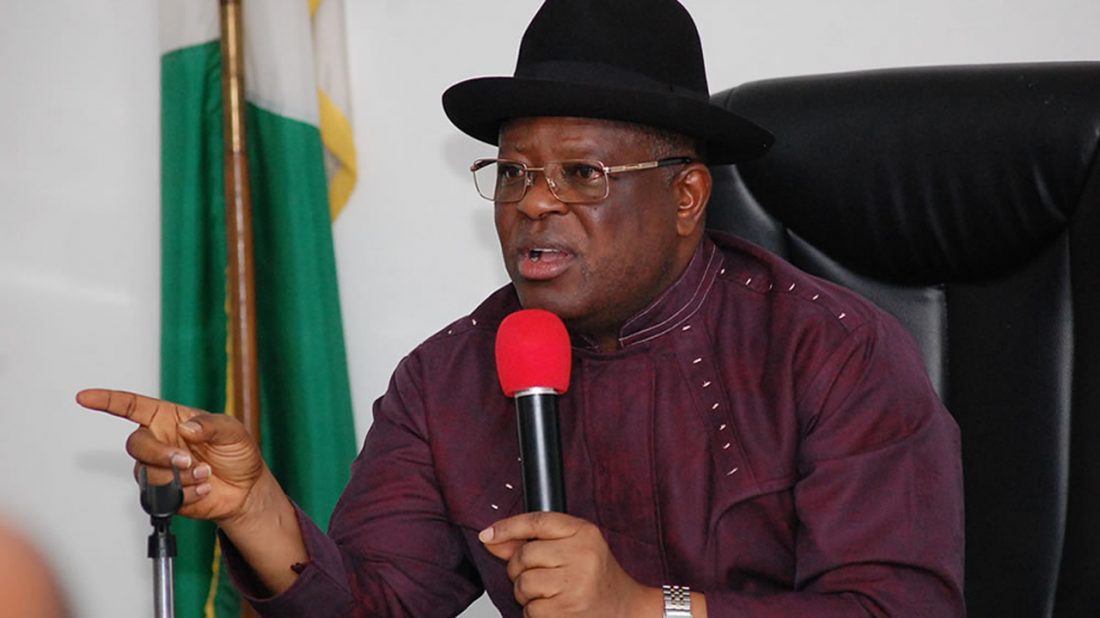LAGOS, Nigeria — “A four-hour drive from Lagos to Abuja.” This audacious claim has Nigerians buzzing after Minister of Works, David Umahi, unveiled the proposed Lagos 4th Mainland Bridge Supersonic Highway during a visit to Ogun and Oyo states.
The Minister’s statement on Friday, September 1, 2023, came as a part of his ongoing highway inspection tour, setting the stage for a radical overhaul of one of Nigeria’s most vital transportation arteries.
According to a statement released by the Director Press and Public Relations unit of the Ministry of Works, Blessing Lere-Adams, the Minister divulged, “Let me announce to you that Lagos’ proposed 4th Mainland Bridge Supersonic Highway will take four hours to drive from Lagos to Abuja.”
The ambitious project, aiming to connect the country’s economic powerhouse, Lagos, to its political capital, Abuja, is planned to commence in a matter of months.
“We had a presentation on it yesterday with the consultant and it’s going to be on Public Private Partnership (PPP). We are concluding on it within one or two months and work will start,” Umahi added.
During his meeting with Ogun State Governor, Dapo Abiodun, in Abeokuta, the Minister elaborated on the Highway Development Management Initiative (HDMI).
The program enables state governments and private investors to engage with the Federal Government for road projects.
“This will largely reduce insecurity and also create service stations. We can monitor security at these service stations; we have mini clinics, toll vans just as we see outside the country,” Umahi said.
The Minister also extended commendations to Governor Seyi Makinde of Oyo State for his proactive work on Federal Roads.
“You have done quite a number of roads and you were not waiting that you must have all approval before you do it. We are excited with Governor Seyi Makinde; we as a Government have also done a number of roads,” said Umahi.
The idea of a four-hour drive between Lagos and Abuja, a journey that can currently take up to 12 hours, is bound to impact trade, tourism, and the economy as a whole.
Yet, it’s also a project that comes with its share of questions, including financial feasibility, environmental concerns, and logistical challenges.
For now, though, Nigerians are cautiously optimistic, waiting to see whether the Minister’s bold proclamation becomes a concrete reality.
As the details of this transformative project come to light, its implications for Nigeria’s road infrastructure and broader development are under intense scrutiny.
The Supersonic Highway could not only reshape the way Nigerians travel but also redefine the country’s economic and geopolitical landscape in a monumental way.
As Nigeria prepares to take this giant leap in infrastructure development, the world watches with bated breath to see if the country can indeed turn this audacious plan into a roadway to its future.







